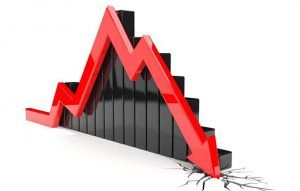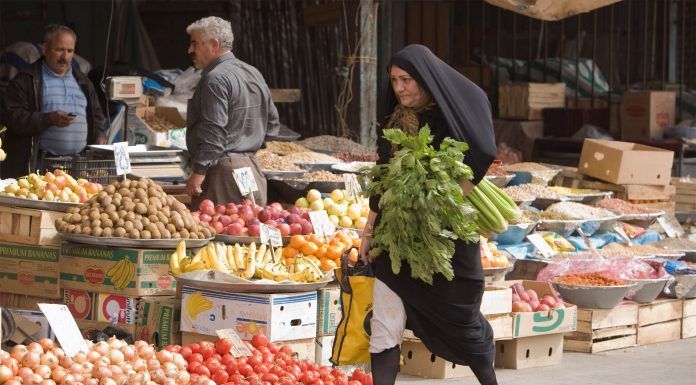Iran’s economy contracted by 1.1 percent at the end of the summer, according to a report by the Statistical Center of Iran. The data also shows that Iran’s non-oil economic output fell 1.6 percent during the same period.
The center collected the information even before U.S. sanctions went into effect. Meanwhile, the International Monetary Fund (IMF) expects Iran’s oil-dependent economy to contract by 3.6 percent in 2019.
Economic output from agriculture and heavy industries fell 3.6 percent and 2.8 percent, respectively. However, the service industry grew 1.2 percent.
The agriculture industry is broken down into farming and fishing, and e

each showed a negative growth of 3.8 percent and 8.7 percent, respectively, during the summer months.
Heavy industries consist of housing, manufacturing, and the oil/gas/electricity sector, and each contracted by 8 percent, 3 percent, and 12.1 percent, respectively.
Mehdi Pourghazi, the director of Iran’s Chamber of Commerce, Industries, Mines and Agriculture (ICCIMA), said: “The government has lost the will to protect the country’s industries. It has abandoned the economy and has focused instead on politics. It is not trying to reform the economy. One can awaken a person who is sleeping but not someone who pretends to be asleep. This country’s past and present governments have always behaved this way.”
“The government plans to fix the situation through subsidies and welfare programs temporarily. There is no long-term plan to find a permanent solution to the problem,” Mr. Pourghazi noted. “The government’s only economic policy is to print money. Our officials blame everything on the sanctions. Evidence shows that 80 percent of the country’s problem stems from bad management. U.S. sanctions have caused the remaining 20 percent.”
Hamid Deyhim, a Tehran University School of Economics faculty member, said: “The country’s economic growth will remain at negative 1.1 percent for the foreseeable future, which means that things will only get worse for average Iranians.” He added: “Wages will drop and inflation will rise. Hyperinflation will destroy the economy. The poor segment of our society will bear the brunt of the economic blow.”
“The poor and underprivileged classes spend 35 to 40 percent of their income on food. Inflation raises the prices of goods including food products,” Deyhim explained. “However, the upper middle class and wealthy spend only 10 percent of their earnings on food. The rich take advantage of inflation by diversifying their investments.”
Translated from Persian by Fardine Hamidi


